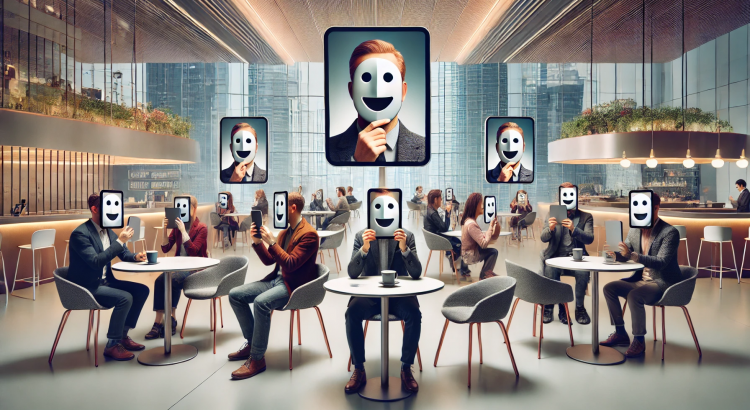First, my own thoughts:
Social media promises to connect us. But it does the exact opposite: it isolates us.
After 250,000 years of smelling and touching each other, humans have now been trained to connect through generic, low-effort, low-quality forms (such as pressing a paper airplane icon a dozen times a day) instead of anything more personal and meaningful.
We have smartphones in our hands 24/7 but never answer them. “Sorry, too busy scrolling!” And there’s no longer an expectation of a reply. Maybe we’ll send a funny link in a few months? Or not.
Dang. I’m guilty of it, too.
I can’t help but remember: my friendships were far richer when we primarily spent time together in person (with voice calls as a secondary, temporary way to communicate or make plans).
Digital communication has tricked me. Sure: I text, I email, I call. But I regularly go days without speaking to another human face-to-face. I’ve lived in the same town for almost 17 years, yet I barely know anyone within 25 miles. For a mammal, that’s not healthy.
My lack of local community has been “normal” for so long that I’ve stopped thinking it’s a problem. But it eats away at me. I can feel that something is wrong.
If I didn’t have these digital crutches, I would be forced to go out and meet the nearby humans. (It’s like when the power goes out, and everyone walks outside and looks at each other: “Oh, huh! I have neighbors!”)
My own subjective opinion: social media is a net negative. We were better off without it.
In Episode 330 of Deep Questions, Cal Newport discusses this “Fake Socializing” and provides a solution. His original segment was spoken off the cuff, so I cleaned it up, added a few phrases for clarity, and created this edited-for-reading version:
Talking with people on social media (digitally typing back and forth on these global conversation platforms) draws on our deep human need — and makes us feel vaguely, “we’re social, we’re talking to people all the time.”
But it’s fake socializing.
The problem is, and I argue this in detail in Digital Minimalism — it’s not actually fulfilling our need for socializing because the deep part of our brain isn’t seeing another person.
“Where is this person? What do they look like? How are we sacrificing non-trivial time and attention on their behalf?”
The deep part of our brain is not experiencing real human relationships. It’s just the rational part of our brain saying, “I’m very social.”
But we’re not. We’re actually very lonely and don’t realize it.
Video games also do this: you’re leveling up. You just killed all the Nazis in this base in Call of Duty. So you feel, “I’m okay. I’m doing enough to be competent.”
But you’re not actually doing anything that’s building true competence. There’s no real friction. You’re not building hard skills in a way that your body or your community recognizes, and that comes to haunt you.
At some point, you wonder, “Why do I feel so hollow or angry or adrift or isolated?”
It’s because you weren’t building up a tangible skill that’s valuable to the community. You were only pretending. A video game simulates that by giving you numbers. You’re “Level 6” — so you do some button pressing and now you’re “Level 7.”
It’s only a simulation of competence, and it’s not really giving you what you need.
Instead, you have to do the old-fashioned work of building real-life connections. Join communities and make yourself useful to them. Try to achieve a leadership position. That’s a great way to be around people, to feel less lonely, and to feel connected.
Think about it as taking regular doses of what I call Vitamin People. Being around real people in person is necessary for your health. If you’ve only been fake socializing, you’re probably deficient.
It’s hard work, but evolution set us up to do it by giving us a collection of fundamental human needs. And those needs are so compelling that in the pursuit of satisfying these needs, we will do that hard work.
These needs include connection, competency, community standing, curiosity, and fear of boredom. They’re powerful, and they motivate us to learn how to socialize, get good at things, become leaders in our communities, and seek out interesting information or productive activities.
Modern phones and the apps and services that are on them can simulate fulfilling these human needs just enough. They make us feel just enough connected, just enough competent, just enough part of a community, and just enough not bored. But they distract us from taking real action.
By short-circuiting those fundamental human drives, we lose the carrot and the stick.
